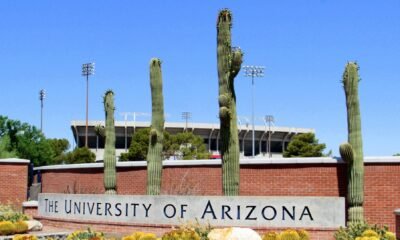Commentary
Fire Marshal Showdown Uncovers Alarming New Threat to School Choice

In a striking move against educational choice, Denise Lever’s Baker Creek Academy in eastern Arizona has faced scrutiny from the Arizona Office of the State Fire Marshal. Lever’s establishment, which functions as a tutoring and homeschool enrichment center, has attracted attention after two years of operation.
The Fire Marshal categorized Baker Creek Academy as a “school,” a classification that brings with it stringent building code requirements traditionally meant for larger educational institutions. This designation could impose costly renovations, sparking concerns about the sustainability of microschools.
Baker Creek Academy operates as a microschool, emphasizing a small, flexible learning environment. Many students attend for only four hours each day, four days a week, making it distinct from conventional schooling setups.
The microschool movement gained momentum during the COVID-19 pandemic, as dissatisfied parents sought alternative educational models. Now, an estimated 10% of U.S. schoolchildren participate in these smaller educational gatherings, which typically consist of around 16 students.
Despite the growth of this model, regulatory frameworks remain unclear. States like Florida and Texas have begun to relax restrictions on microschools, while many others still classify them alongside traditional public schools. In Wisconsin, for example, any instructional program available to more than one family triggers state oversight.
While Arizona’s Department of Education offers a definition for private schools, the standards vary. The Fire Marshal uses a broader definition that could inadvertently stifle microschools. This mismatch in definitions was highlighted when state officials investigated Baker Creek Academy on April 1, 2025, leading Lever to seek legal support from the Institute for Justice.
Fortunately, Lever achieved a swift legal victory, allowing Baker Creek Academy and three other microschools to continue operating. Similar challenges, however, have not fared as well; regulatory actions have closed down microschools in other states, imposing severe fines and onerous compliance requirements.
In Arizona, the state’s largest teachers union, the Arizona Education Association, aims to limit the Empowerment Scholarship program, which funds educational alternatives like microschools. These developments underscore the tension between traditional education models and innovative alternatives that many parents now seek.
Lever’s experience highlights the broader struggle faced by microschool advocates. Although legal support is available, meaningful legislative reforms could alleviate many hurdles that educators encounter. It’s crucial for lawmakers to pave the way for educational freedom by supporting diverse learning environments.
Michael Greenberg is an attorney, and Daryl James is a writer at the Institute for Justice.


















